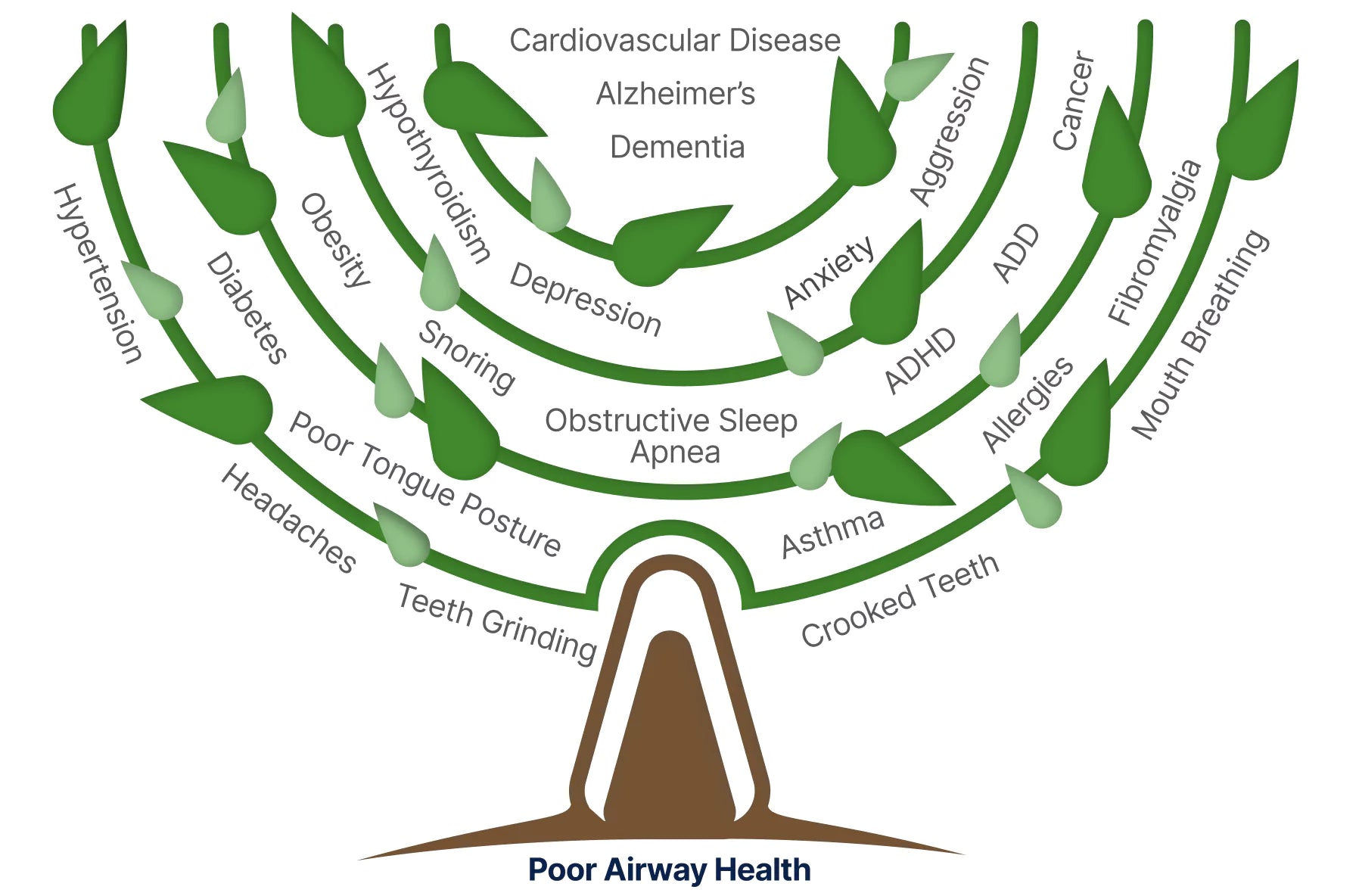
Why Does Airway Health Matter?
Poor airway health and inadequate sleep are commonly overlooked and unrecognized as a contributor to many chronic health conditions.
1 billion people suffer from sleep related breathing disorders.
80% of Obstructive Sleep Apnea (OSA) cases are undiagnosed.
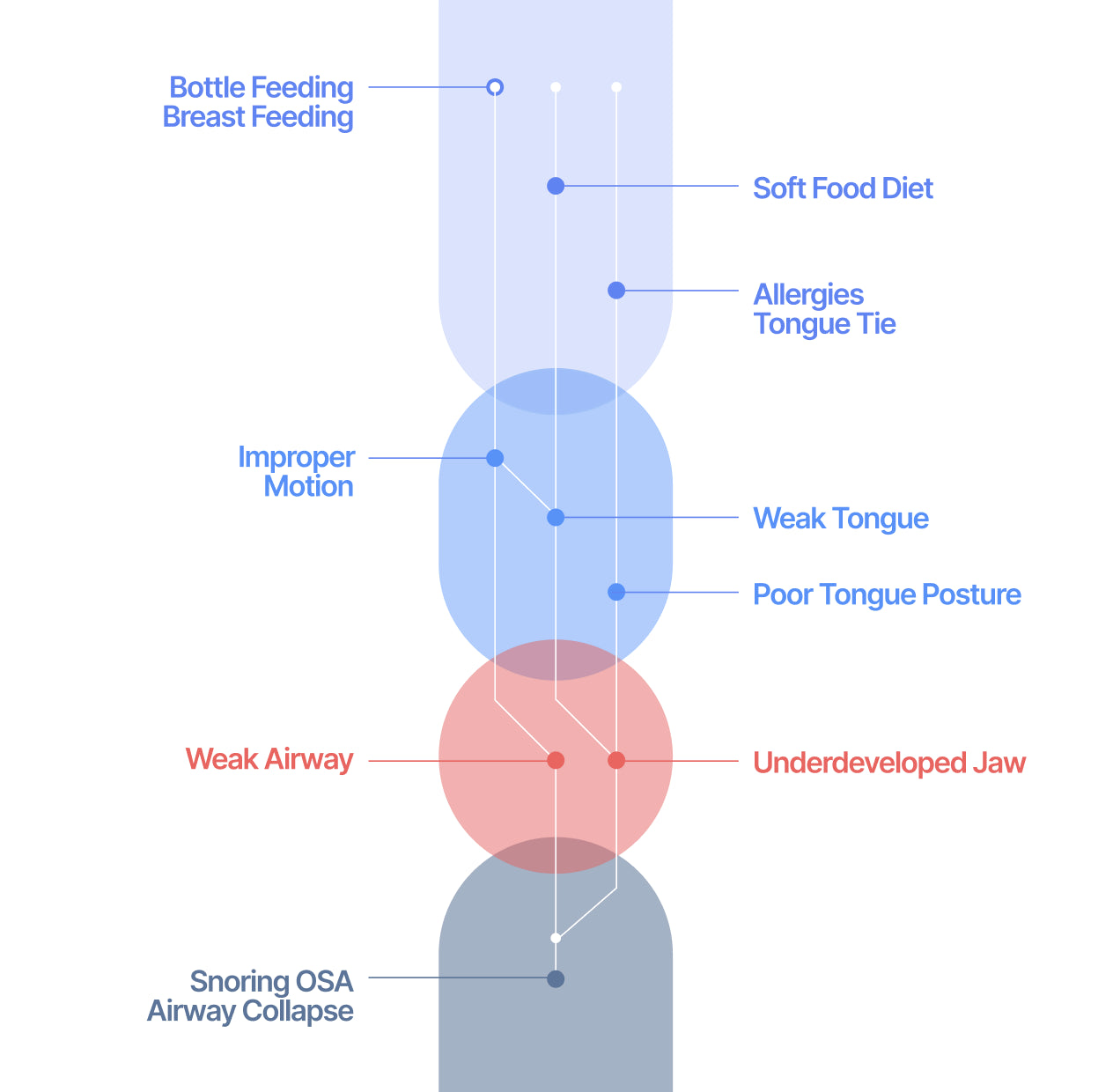
How Did We Get Here? Connecting the Dots
Soft Food Diet
Compared to our ancestors, we eat a modern soft food diet - resulting in underused tongue and facial muscles, smaller under-developed jaws, and a weaker airway.
The Importance of the Tongue
The tongue’s proper resting position is lightly suctioned to the roof of the mouth. A weak tongue rests lower in the mouth leading to mouth breathing and prevents proper growth and development of the jaw resulting in a smaller and more narrow airway. A smaller and narrow airway is a major contributing factor to sleep disordered breathing, snoring and obstructive sleep apnea.
Why Nasal Breathing is Key
Nasal breathing is critical to the immune defenses. It humifies and filters the air of toxins while creating anti-bacterial, anti-viral and anti-fungal nitric oxide, a vital component to health.
This affects our ability to breathe and sleep, having a profound impact on physical health and mental well-being.
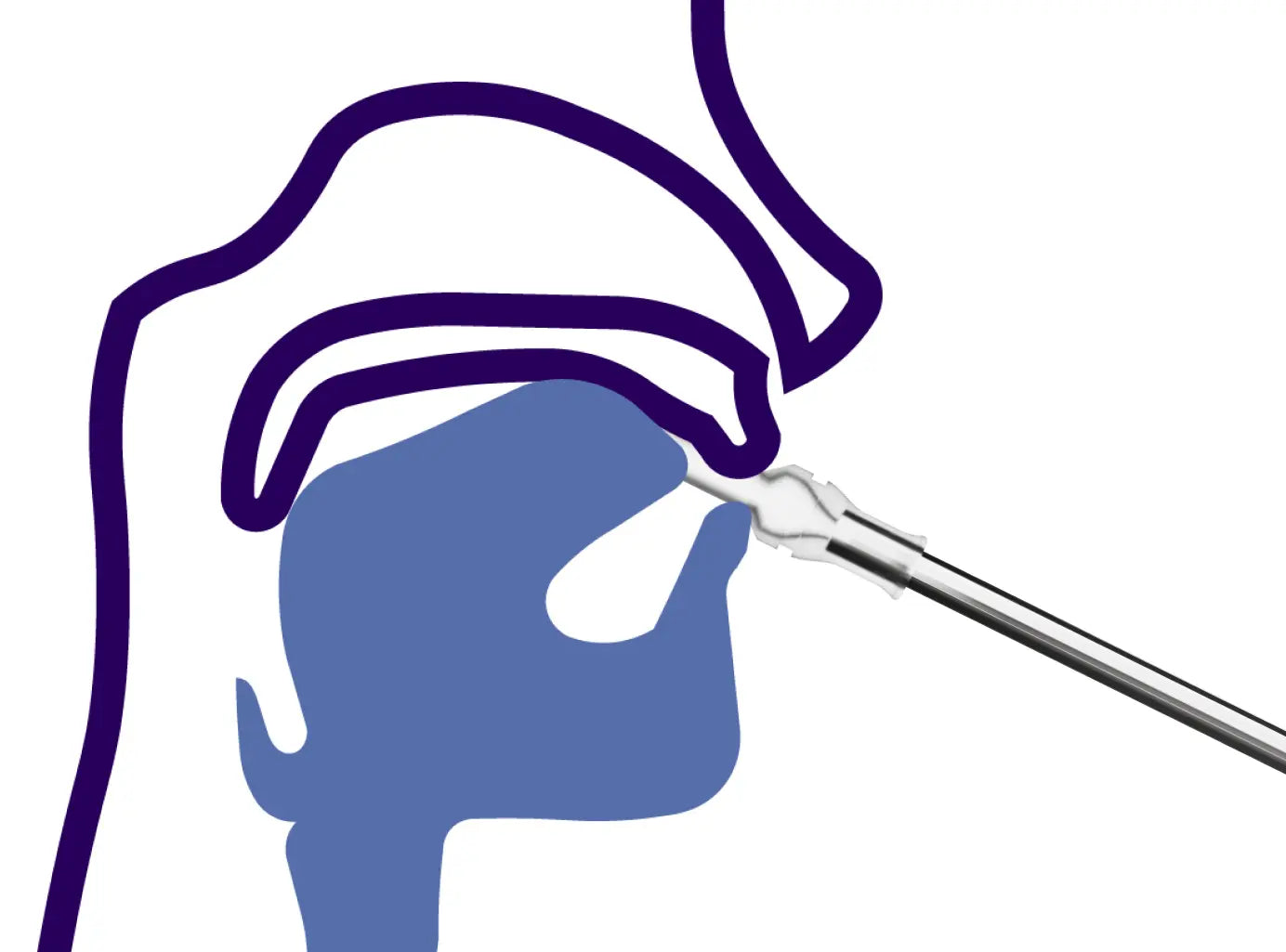
The Importance of the Tongue
A properly functioning tongue provides a critical foundation for airway health. The tongue plays a vital role in how you eat, swallow, speak - and most importantly - breathe and sleep.
Modern lifestyles and soft food diets can result in smaller jaws and weaker muscles. A weak tongue often lacks the strength to stay in its proper position, lightly suctioned to the roof of the mouth while at rest.
When the tongue is strong and resting in its proper position it supports correct swallow function, nasal breathing and helps maintain an open airway.
What is a correct swallow?
Grab a glass of water and take sip... The swallow should start where the tongue lands when you say the letter "N", next the tongue should compress along the roof of the mouth from front to back propelling food and liquid down the throat. The cheeks and neck should remain soft.
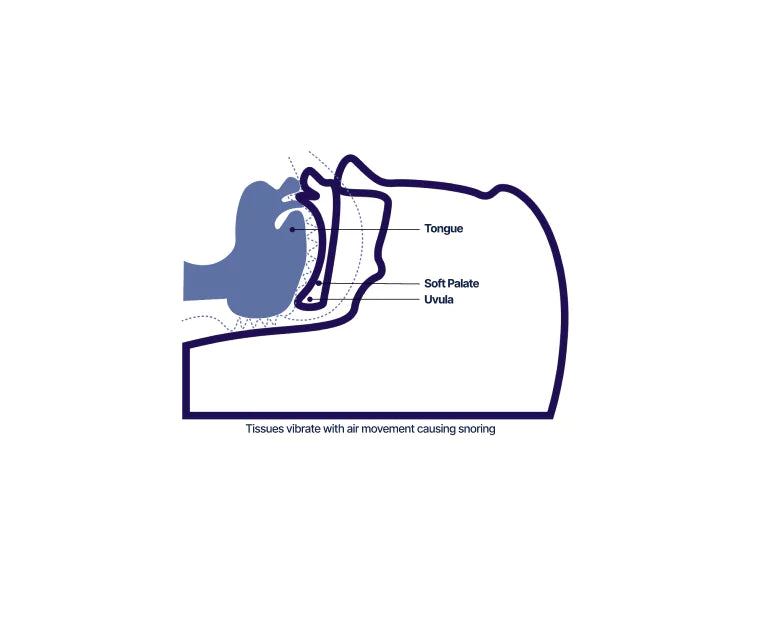
How does this affect Breathing and Sleep?
Snoring is a sound produced by the vibration of the soft tissues of the upper airway during sleep.
Tongue: Tongue relaxes, falls back, and decreases airway size, resulting in a louder snore.
Mouth: Soft palate relaxes and vibrates from air flow.
Throat: Relaxation of the pharyngeal muscles causes the airway to decrease in size.
Nasal: Plugged nostrils, deviated septum, enlarged turbines, or allergies can reduce the airflow through the nose and result in a high-pitched snore.
Second-hand Snoring: When a person sleeps with a snoring bed partner, they often have disrupted sleep that can have a profound impact on
their overall health and mental well-being.

Obstructive Sleep Apnea
If snoring is loud and habitual it may indicate the presence of obstructive sleep apnea (OSA), a serious medical condition where the airway collapses and breathing is stopped for a period of time that is sufficient to disrupt sleep.
Here are common indicators of OSA:
- Excessive daytime tiredness.
- Waking up with a headache or fogginess in the morning
- Waking up numerous times throughout the night
- Gasping for air while sleeping
*We strongly recommend anybody that has suspected obstructive sleep apnea (OSA) to consult with their physician on the best course of action. If you receive improvement in tiredness or any of the OSA indicators from device use, you may be at risk of having OSA.
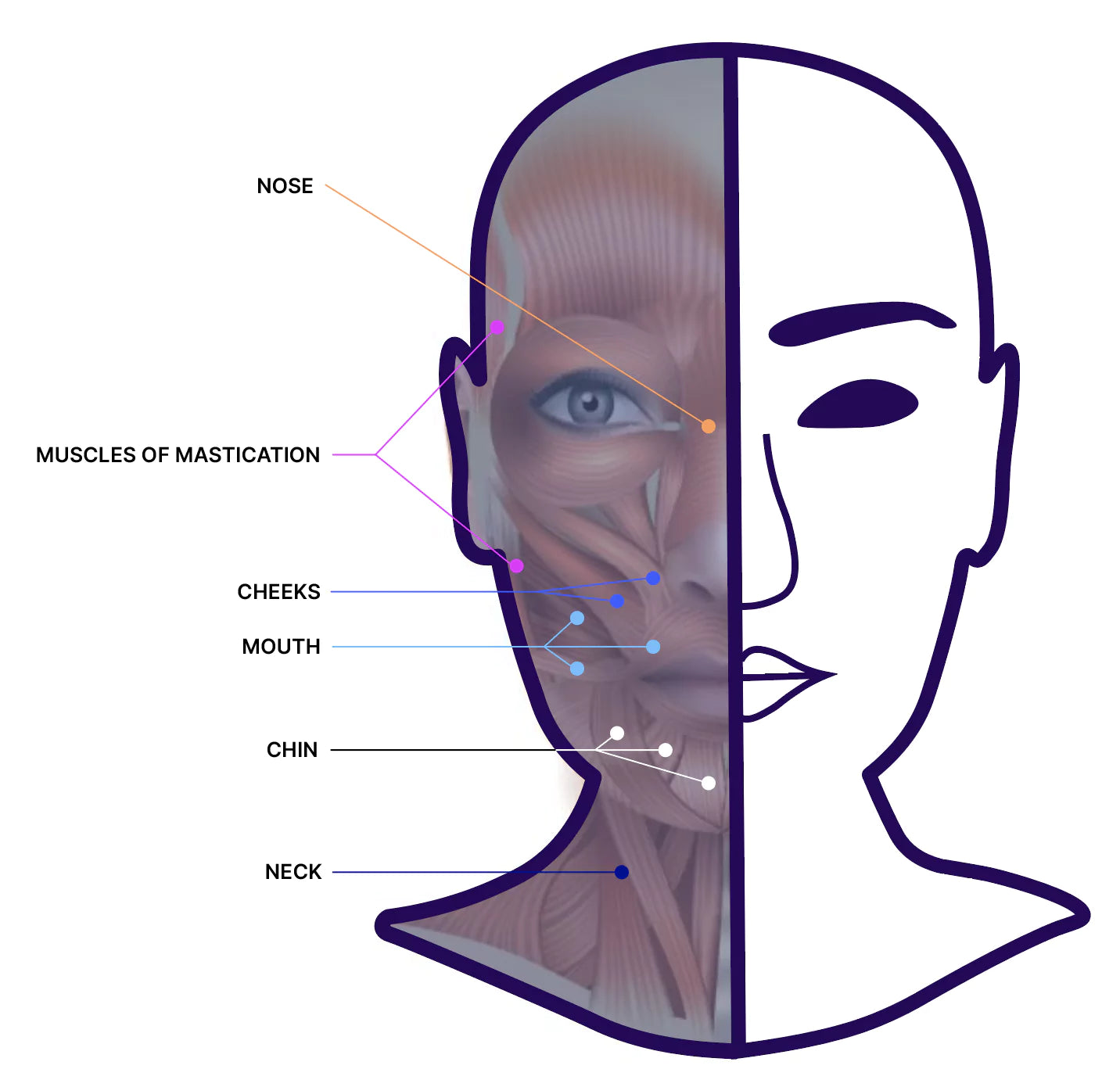
What is Myofunctional Therapy?
Myofunctional Therapy is specialized exercise of the muscles of the upper airway, face, mouth, and tongue in order to promote proper function and coordination.
The Goals of Myofunctional Therapy:
- Ensure the tongue rests on the roof of the mouth
- Train you to swallow correctly
- Keep lips sealed together with light pressure at rest
- To help you breathe through your nose day and night

